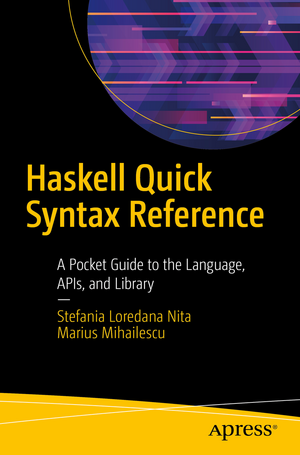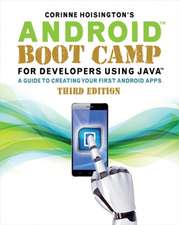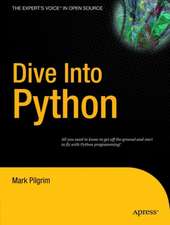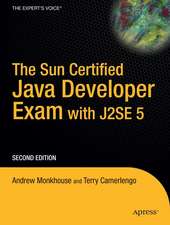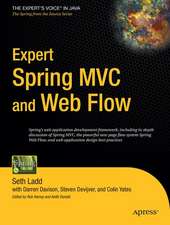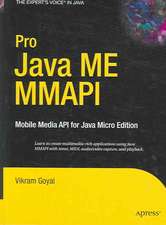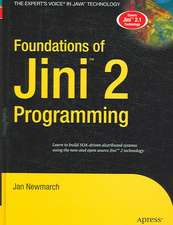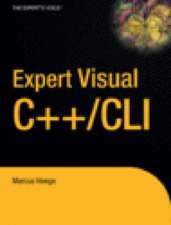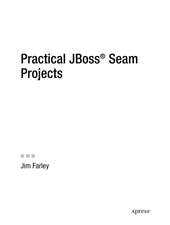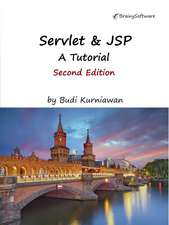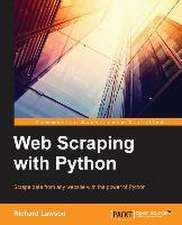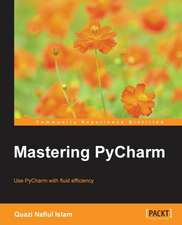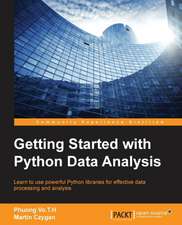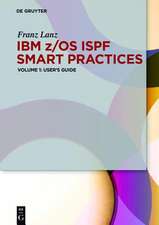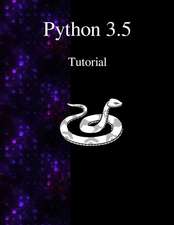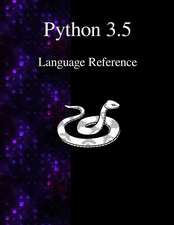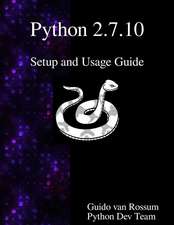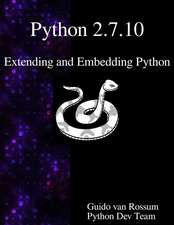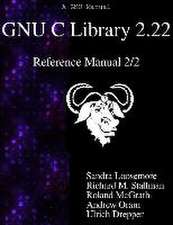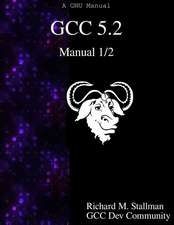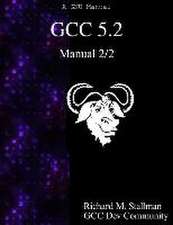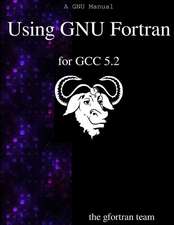Haskell Quick Syntax Reference: A Pocket Guide to the Language, APIs, and Library
Autor Stefania Loredana Nita, Marius Mihailescuen Limba Engleză Paperback – 11 iun 2019
This condensed code and syntax reference presents the essential Haskell syntax in a well-organized format that can be used as a quick and handy reference, including applications to cloud computing and data analysis. This book covers the functional programming features of Haskell as well as strong static typing, lazy evaluation, extensive parallelism, and concurrency
You won’t find any technical jargon, bloated samples, drawn out history lessons, or witty stories in this book. What you will find is a language reference that is concise, to the point and highly accessible. The Haskell Quick Syntax Reference is packed with useful information and is a must-have for any Haskell programmer working in big data, data science, and cloud computing.
What You Will Learn
- Quickly and effectively use the Haskell programming language
- Take advantage of strong static typing
- Work with lazy evaluations
- Harness concurrency and extensive parallelism using Haskell
Who This Book Is For
Experienced programmers who may be new to Haskell or have experience with Haskell and who just want a quick reference guide on it.
Preț: 176.86 lei
Preț vechi: 221.08 lei
-20% Nou
Puncte Express: 265
Preț estimativ în valută:
33.85€ • 35.21$ • 27.94£
33.85€ • 35.21$ • 27.94£
Carte disponibilă
Livrare economică 24 martie-07 aprilie
Preluare comenzi: 021 569.72.76
Specificații
ISBN-13: 9781484245064
ISBN-10: 1484245067
Pagini: 140
Ilustrații: XX, 207 p. 33 illus.
Dimensiuni: 155 x 235 mm
Greutate: 0.33 kg
Ediția:1st ed.
Editura: Apress
Colecția Apress
Locul publicării:Berkeley, CA, United States
ISBN-10: 1484245067
Pagini: 140
Ilustrații: XX, 207 p. 33 illus.
Dimensiuni: 155 x 235 mm
Greutate: 0.33 kg
Ediția:1st ed.
Editura: Apress
Colecția Apress
Locul publicării:Berkeley, CA, United States
Cuprins
1. Functional Programming.- 2. Static Typing.- 3. GHC.- 4. Types.- 5. Tuples.- 6. Lists.- 7. Functions.- 8. Recursion.- 9. List Comprehension.- 10. Classes.- 11. Pattern Matching.- 12. Monads.- 13. Monads Transformers.- 14. Parsecs.- 15. Folds.- 16. Algorithms.- 17. Parsings.- 18. Parallelism.- 19. Haskell Pipes.- 20. Lens.- 21. Lazy Evaluation.- 22. Performance.- 23. Haskell Stack.- 24. Yesod.- 25. Haskell Libraries.- 26. Cabal.
Notă biografică
Stefania Loredana Nita holds two B.Sc., one in mathematics (2013) and one in computer science (2016) from the University of Bucharest, Faculty of Mathematics and Computer Science; she received her M.Sc. in software engineering (2016) from the University of Bucharest, faculty of Mathematics and Computer Science. She has worked as developer for an insurance company (Gothaer Insurance), and as a teacher of mathematics and computer science in private centers of education. Currently, she is a Ph.D. student in computer science in the Faculty of Mathematics and Computer Science at the University of Bucharest. Also, she is a teaching assistant at the same university and since 2015 has worked as a researcher and developer at the Institute for Computers, Bucharest, Romania. Her domains of interest are cryptography applied in cloud computing and big data, parallel computing and distributed systems, and software engineering.
Marius Mihailescu received his B.Sc. in science and information technology (2008) and B.Eng. in computer engineering (2009) from the University of Southern Denmark; he holds two M.Sc., one in software engineering (2010) from the University of Bucharest and the second one in information security technology (2011) from the Military Technical Academy. His Ph.D. is in computer science (2015) from the University of Bucharest, Romania with a thesis on security of biometrics authentication protocols. From 2005 to 2011 he worked as a software developer and researcher for different well-known companies (Softwin, NetBridge Investments, Declic) from Bucharest, Romania (software and web development, business analysis, parallel computing, cryptography researching, distributed systems). Starting in 2012 until 2015 he has been an assistant in the informatics department, University of Titu Maiorescu and computer science department, University of Bucharest. Since 2015, he is a lecturer at the University of South-East Lumina.
Textul de pe ultima copertă
This condensed code and syntax reference presents the essential Haskell syntax in a well-organized format that can be used as a quick and handy reference, including applications to cloud computing and data analysis. This book covers the functional programming features of Haskell as well as strong static typing, lazy evaluation, extensive parallelism, and concurrency
You won’t find any technical jargon, bloated samples, drawn out history lessons, or witty stories in this book. What you will find is a language reference that is concise, to the point and highly accessible. The Haskell Quick Syntax Reference is packed with useful information and is a must-have for any Haskell programmer working in big data, data science, and cloud computing.
You will:
- Quickly and effectively use the Haskell programming language
- Take advantage of strong static typing
- Work with lazy evaluations
- Harness concurrency and extensive parallelism using Haskell
Caracteristici
Written by Haskell experts who are professional coders, engineers and lecturers/trainers A unique quick syntax reference guide to the Haskell programming language Covers Haskell's functional programming features, as well as strong static typing, lazy evaluation, extensive parallelism, and concurrency
